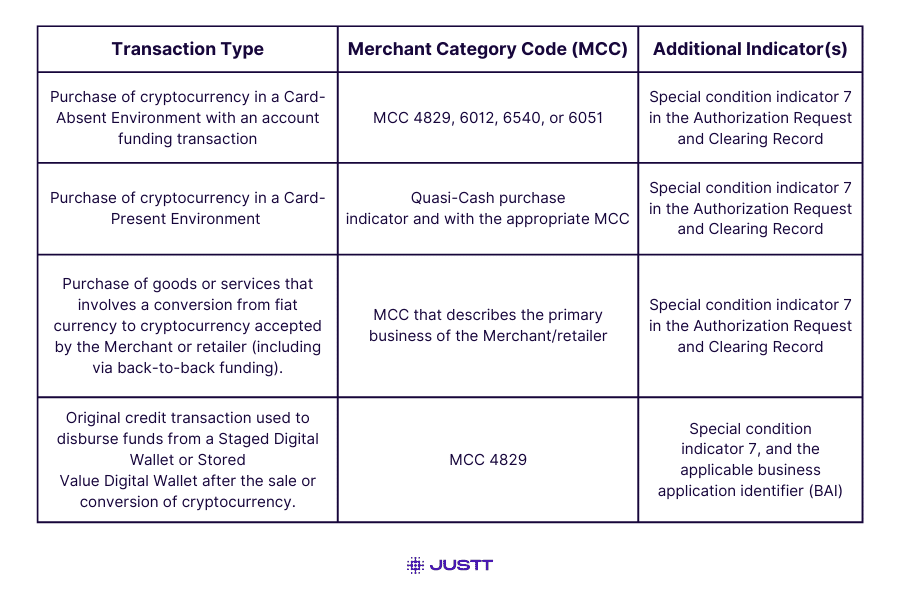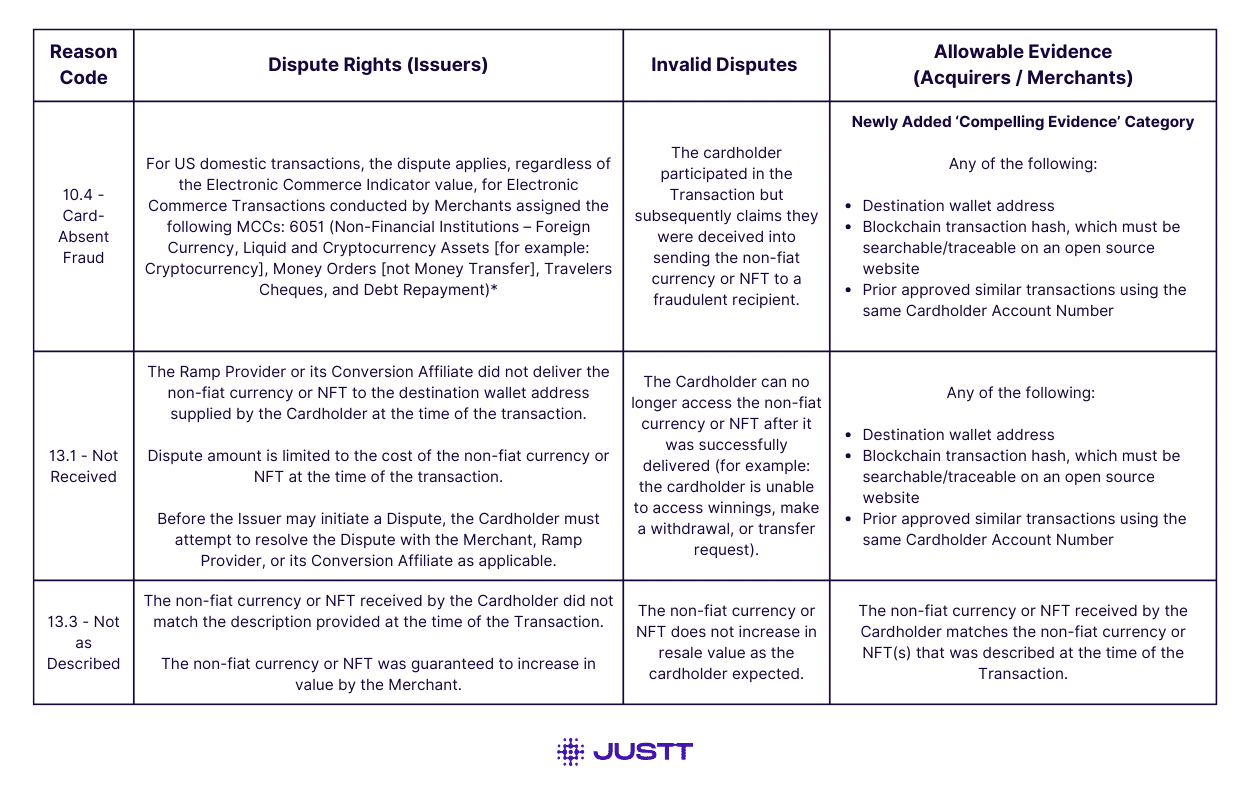Increased Scrutiny for Infrastructure Providers and Acquirers
What merchants need to know: Crypto infrastructure providers must be registered as Third Party Agents with Visa, need to establish adequate screening and risk controls when dealing with their customers, and be prepared to be liable for all end-user disputes.
Visa has introduced two definitions related to the entities involved in payment processing for crypto onramp.
Ramp Providers are third party agents responsible for converting transactions from fiat currency to non-fiat currency or vice versa.
Conversion Affiliates are entities that utilize Visa payment services provided by Ramp Providers to offer payment services for converting transactions. These entities can include retailers, cryptocurrency exchanges, non-fungible token (NFT) marketplaces, or decentralized applications (dApps).
Ramp Providers are lumped-in with other intermediary entities that are defined within the Visa rules – Marketplaces, Payment Facilitators, and Digital Wallet Operators (DWO).
These entities are classified separately from regular merchants, and have additional obligations imposed on them, mainly – increased responsibility with regards to their role as aggregators of multiple businesses under one payment accepting umbrella (for the initiated, more information about these entities can be found in this resource that was recently published by Visa – Beyond the Acquirer: Additional Visa Acceptance Entities).
These responsibilities include:
- When processing transactions for an affiliate located in a different country, ensure the legality of the transaction in such country.
- Liability for all acts, omissions, cardholder disputes, and other Cardholder customer service-related issues caused by the Ramp Provider’s Conversion Affiliates.
- Ramp Provider is responsible and financially liable for each Transaction processed on behalf of a Conversion Affiliate.
- Not to transfer, or permit the Conversion Affiliate to transfer, its financial liability by asking or requiring Cardholders to waive their dispute rights.
- Must not deposit Transactions on behalf of another Ramp Provider, Payment Facilitator or Staged Digital Wallet.
- Must deposit Transactions only on behalf of Conversion Affiliates of goods and services that use the Ramp Provider’s services under a contract.
- Must not knowingly contract with a retailer whose contract to accept Transactions was terminated at the direction of Visa or a government agency.
- Must provide the names of principles and their country of domicile for each of its Conversion Affiliates and Transaction reports to its Acquirer and to Visa upon request.
- Must ensure that its Conversion Affiliates comply with PCI, if the Ramp Provider delivers payment information to Conversion Affiliates.
For Acquirers engaging with Ramp Providers, the following criteria must be met effective April 13, 2024, in various regions globally (AP, CEMEA, Europe, LAC except Brazil, US), and from October 19, 2024, in Canada and Brazil:
- Maintain good standing in all Visa risk management programs.
- Demonstrate financial stability as determined by Visa.
- Ensure Ramp Providers do not engage with Payment Facilitators or Staged Digital Wallet Operators for transaction processing.
- Register Ramp Providers as Third Party Agents with Visa.
- Conduct due diligence on Conversion Affiliates, implementing risk management controls to:
- Prevent illegal transactions in the Ramp Provider’s, Conversion Affiliate’s, or Cardholder’s location.
- Prevent the sale of counterfeit or infringing products.
- Establish a process for handling rights-holder complaints.
- Ensure activities do not harm the Visa brand and comply with anti-money laundering and anti-terrorist financing laws and regulations.
- Ensure Ramp Providers comply with Visa Rules for Merchants unless stated otherwise.
- Obtain a unique Ramp Provider identifier from Visa and assign it to each Ramp Provider for transaction processing.
- Ensure each Conversion Affiliate receives a unique identifier from the Ramp Provider.
- Include the Ramp Provider and Conversion Affiliate identifiers in Authorization and Clearing Records.
In a Ramp Provider agreement, an Acquirer must include provisions to enforce the Ramp Provider’s responsibilities, and the Acquirer’s right to exert its influence where required.





